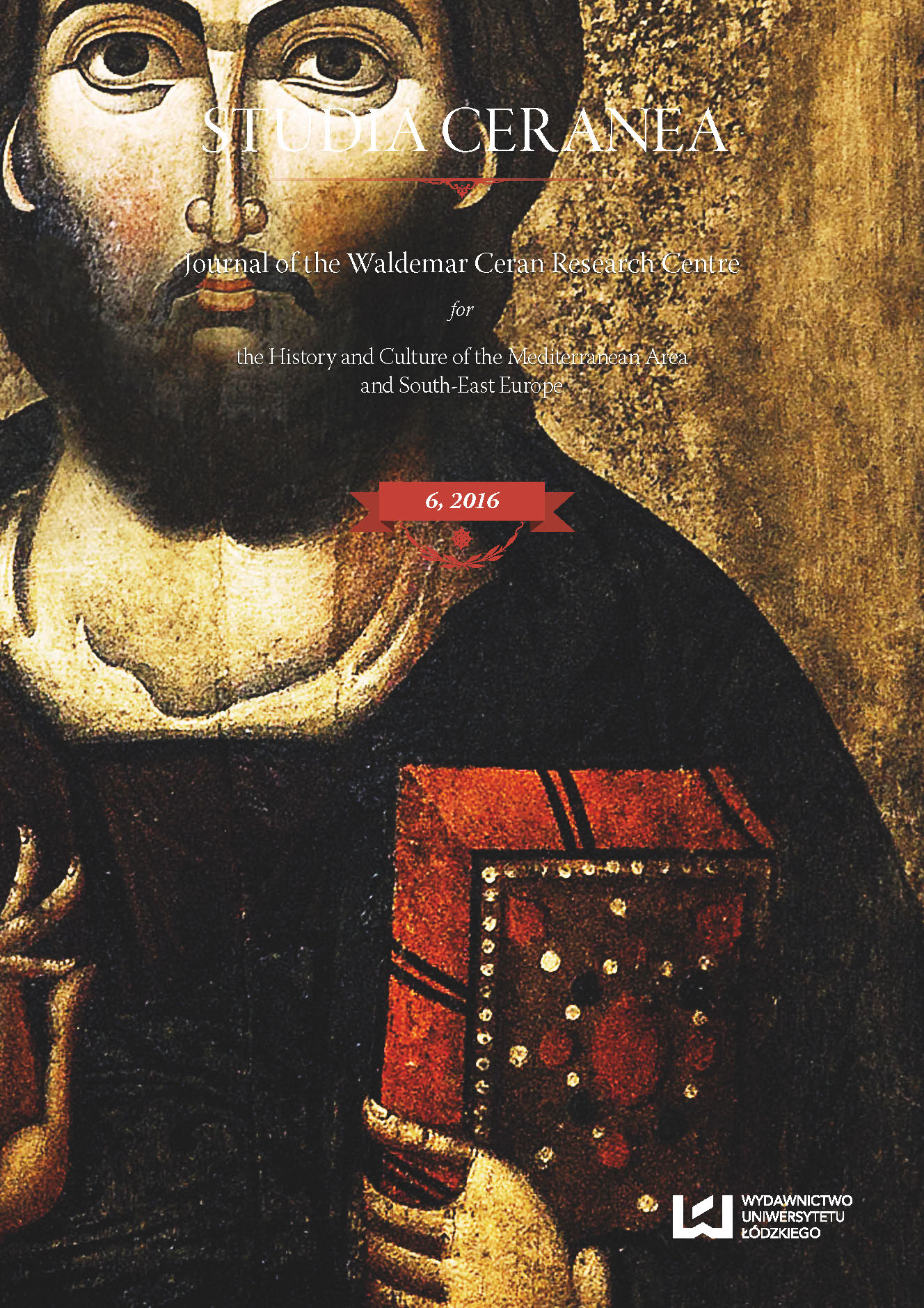The Knowledge of Ecclesiastical Law by Socrates of Constantinople Confronted with the Works by Hermias Sozomen
DOI:
https://doi.org/10.18778/2084-140X.06.13Keywords:
Socrates of Constantinople, Hermias Sozomen, Ecclesiastical History, ecclesiastical lawAbstract
In subject literature there has been a discussion regarding juridical education of Socrates, the author of Ecclesiastical History. For quite long he has been believed to be a lawyer, owing to the title scholastikos, attributed to him. Recently, however, his legal education has been questioned by some scholars. The purpose of this article is to try to answer whether Socrates, as viewed from the work of Sozomen, also presumably a lawyer, could have knowledge of ecclesiastical law and distinguished between the terms of canon (used in ecclesiastical law) and nomos (used in civil law). The analysis of both Ecclesiastical Histories proves that the word canon had numerous meanings for Socrates, who used it while referring to pure ecclesiastical law, as well as to church regulations or practices, ordinances, resolutions, church registry, or even expressions of faith. Moreover, some regulations in ecclesiastical law were not always called canons by Socrates, which demonstrates some lack of precision while using legal terminology. Sozomen, on the other hand, while correcting Socrates’ narration, restricted the meaning of the term canon only to the particular church regulations, excluding those established by heterodox synods, which had a significant impact on how frequently they appeared in the text. The liberty of using legal terms by Socrates can be an additional argument to prove that he was not a professional lawyer, just like some discrepancies in the knowledge of ecclesiastical law are clearly visible in describing powers of the bishops of Rome and Constantinople.
Downloads
References
Dokumenty Soborów Powszechnych, tekst grecki, łaciński, polski, t. I: Nicea I, Konstantynopol I, Efez, Chalcedon, Konstantynopol II, Konstantynopol III, Nicea II (325–787), ed. A. Baron, H. Pietras, Krakow 2002.
Google Scholar
Socrates, Histoire ecclésiastique, texte grec de l’ed. G.C. Hansen (GCS), trad. francaise par P. Perichon, P. Maraval [= SC 477, 493, 505, 506], Paris 2004–2007.
Google Scholar
Sokrates, Kirchengeschichte, ed. G.C. Hansen, Berlin 1995 [= GCS. NF 1].
Google Scholar
Sozomene, Histoire ecclésiastique, t. I–IV, texte grec de l’ed. J. Bidez (GCS), trad. francaise par A-J. Festugiere, B. Grillet, intr. par B. Grillet, G. Sabbah, annot. par G. Sabbah, L. Angliviel de la Beaumelle, Paris 1983, 1996–2008 [= SC 306, 418, 495, 516].
Google Scholar
Sozomenus, Kirchengeschichte, ed. J. Bidez, G.C. Hansen, Berlin 1960.
Google Scholar
Vita Spyridonis, [in:] La Légende de S. Spyridon, éveque de Trimithonte, ed., trad. P. Van den Ven, Louvain 1953.
Google Scholar
A Patristic Greek Lexicon, ed. G.W.H. Lampe, Oxford 1961.
Google Scholar
Barnes T.D., Athanasius and Constantius, Cambridge 1993.
Google Scholar
Beck H.-G., Nomos, Kanon und Staatsraison in Byzanz, Wien 1981 [= SOAW.PHK, 384].
Google Scholar
Bralewski S., Obraz papiestwa w historiografii kościelnej wczesnego Bizancjum, Łodź 2006.
Google Scholar
Chesnut G.F., The First Christian Histories. Eusebius, Socrates, Sozomen, Theodoret, and Evagrius, Paris 1977.
Google Scholar
Gaudemet J., Les sources du droit de l’Église en Occident du IIe au VIIe siecle, Paris 1985.
Google Scholar
Hess H., The early development of canon law and the Council of Serdica, Oxford 2002.
Google Scholar
Janiszewski P., Żywioły w służbie propagandy, czyli po czyjej stronie stoi Bóg. Studium klęsk i rzadkich fenomenów przyrodniczych u historyków Kościoła w IV i V wieku, [in:] Chrześcijaństwo u schyłku starożytności. Studia źródłoznawcze, t. III, ed. T. Derda, E. Wipszycka, Krakow 2000, p. 11–191.
Google Scholar
Nuffelen P. van, Un Héritage de Paix et de Piété. Étude sur les histoires ecclésiastiques de Socrate et de Sozomene, Leuven–Paris–Dudley 2004.
Google Scholar
Ohme H., Kanon ekklesiastikos, Berlin 1998.
Google Scholar
Pennington K., The growth of church law, [in:] The Cambridge History of Christianity, vol. II: Constantine to c. 600, ed. A. Casiday, F.W. Norris, Cambridge 2008, p. 386–402.
Google Scholar
Rodopoulos P., An Overview of Orthodox Canon Law, Rollinsford 2007.
Google Scholar
Simon D., Legislation as Both a World Order and a Legal Order, [in:] Law and Society in Byzantium: Ninth–Twelfth Centuries, ed. A.E. Laiou, D. Simon, Washington 1994, p. 1–27.
Google Scholar
Troianos S.N., Nomos und Kanon in Byzanz, [in:] idem, Historia et Ius (1999–2004), vol. II, Athen 2004, p. 199–222.
Google Scholar
Urbainczyk T., Observations on the differences between the Church Histories of Socrates and Sozomen, Hi 46, 1997, p. 355–373.
Google Scholar
Urbainczyk T., Socrates of Constantinople: Historian of Church and State, Michigan 1997.
Google Scholar
Young F., From Nicaea to Chalcedon, London 1983.
Google Scholar
Wallraff M., Der Kirchenhistoriker Sokrates. Untersuchungen zu Geschichtsdarstellung, Methode und Person, Gottingen 1997.
Google Scholar
Wessel S., The Formation of Ecclesiastical Law in the Early Church, [in:] The History of Byzantine and Eastern Canon Law to 1500, ed. W. Hartmann, K. Pennington, Washington 2012, p. 1–23.
Google Scholar














